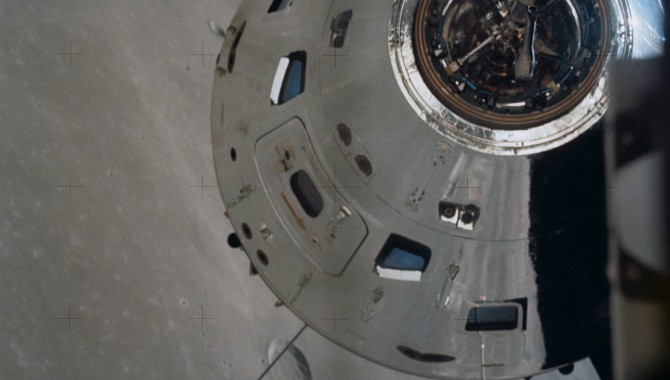
By Howard E. McCurdy The first phase of the Vision for Space Exploration—wherein humans and their machines return to the Moon—is no exception. NASA officials could dust off old blueprints and return to the Moon using 1960s technology.

By Howard E. McCurdy The first phase of the Vision for Space Exploration—wherein humans and their machines return to the Moon—is no exception. NASA officials could dust off old blueprints and return to the Moon using 1960s technology.
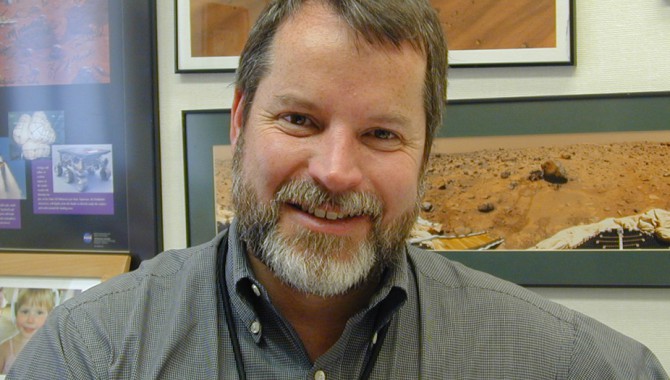
By Don Cohen COHEN: I want to talk about your take on the 7120.5D processes and requirements, but let’s start with the Mars program experience that has shown you how projects work.
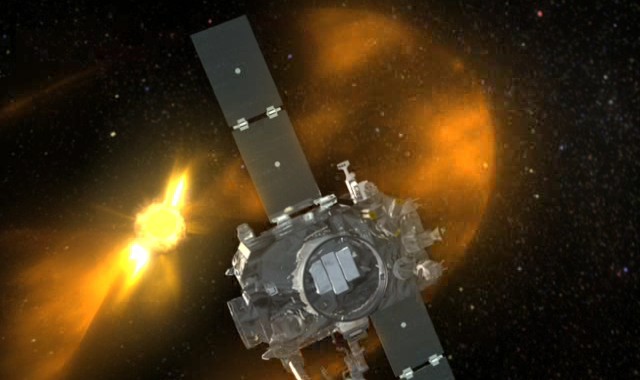
By Rex Geveden As someone who has worn a lot of hats within NASA, I would be the last person to say that policies and procedures don’t matter.
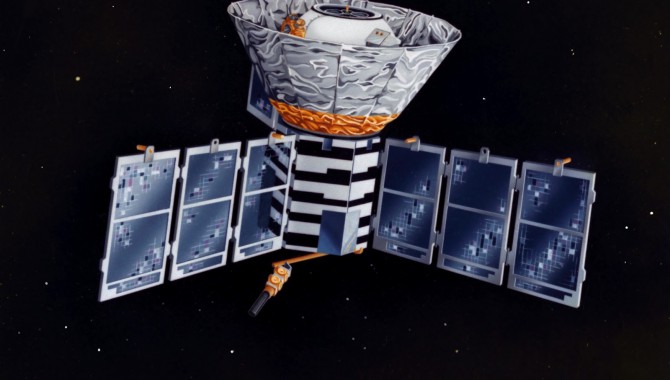
By Dennis McCarthy From 1983 to 1989, I was deputy project manager at Goddard Space Flight Center for the Cosmic Background Explorer (COBE), the spacecraft that enabled NASA scientist Dr. John Mather and his colleague Dr. George Smoot (University of California/Berkeley) to investigate the origin of galaxies and stars and offer the most conclusive evidence […]
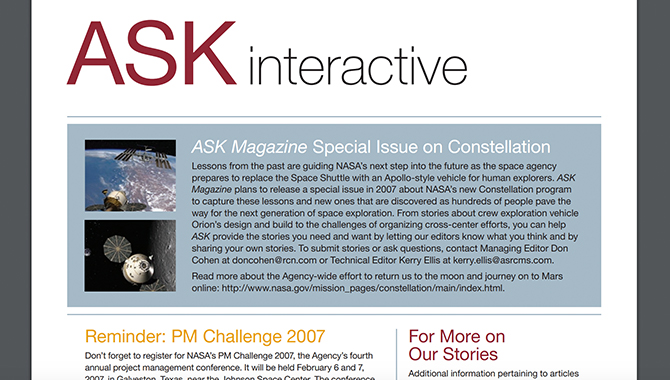
ASK Magazine Special Issue on Constellation Lessons from the past are guiding NASA’s next step into the future as the space agency prepares to replace the Space Shuttle with an Apollo-style vehicle for human explorers.

Here are descriptions of two books, very different from one another, that we believe will interest ASK readers.
By Dr. Ed Hoffman It’s amazing how you can examine an object or issue ten, twenty, or hundreds of times and manage to still find nuances or a different view of the whole picture if you step away from it long enough and come back to it later — or even bring in an outside […]
By Laurence Prusak While we at NASA are very aware of research and activities related to every aspect of outer space, there are other kinds of space that have been gaining the attention of organizational researchers and practitioners.
Project work often generates new knowledge — both technical knowledge and knowledge about how to carry out projects successfully.